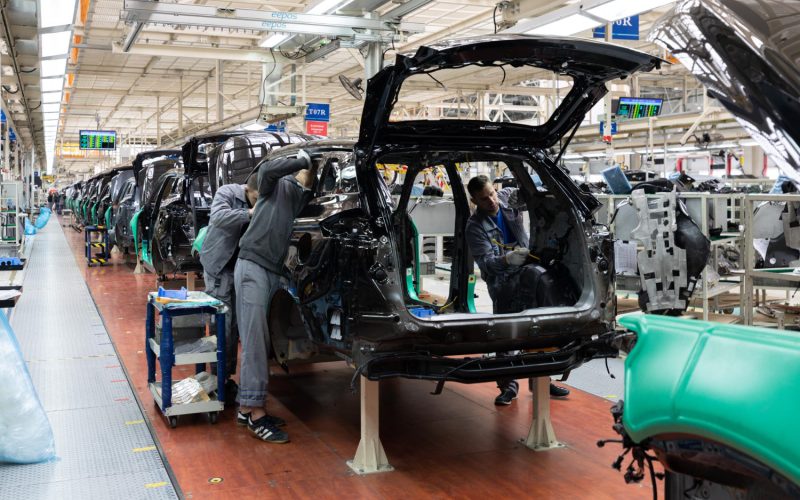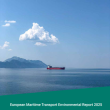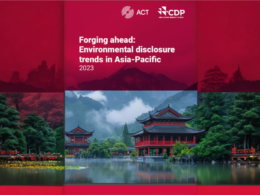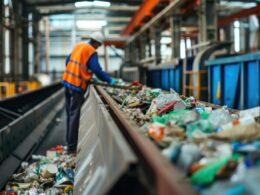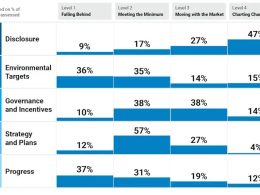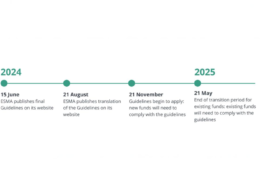In December 2024, Balkan Insight reported that MAN Truck & Bus, a Volkswagen subsidiary in Germany, ceased sourcing tires from Shandong Linglong Tire factory in Serbia following allegations of human rights abuses (Balkan Insight, 2024). The accusations included passport confiscation, unsanitary living conditions, and violations of Serbian labour laws, primarily affecting Indian and Vietnamese migrant workers.
These allegations date back to reporting from 2021, conducted by a Serbian NGO. They were even addressed before the European Parliament in 2021. That year, the European Parliament adopted a resolution expressing deep concerns about alleged forced labour, human rights violations, and human trafficking involving 500 Vietnamese workers at the Linglong Tire factory in Serbia. It urged Serbian authorities to thoroughly investigate the allegations, ensure respect for labour rights, and align with EU labour and environmental standards (European Parliament Resolution, 2021).
Although the situation remained unresolved, according to news from November 2024, MAN Truck & Bus (Volkswagen Group) stopped all delivery requests from Shandong Linglong Tire. The company stated: “We have followed the reporting on working conditions at the Serbian facility of one of our suppliers. The allegations of human rights violations in this context are taken very seriously, and we have already taken appropriate steps to clarify the facts.” Moreover, MAN Truck & Bus added that it had not yet received any supplies from Linglong’s Serbia plant, clarifying that “Serious violations of labour standards and human rights can lead to the termination of contracts with suppliers if corrective measures are not taken” (Balkan Insight, 2024).
The Business & Human Rights Resource Centre (BHR) addressed the issue by publishing an open call to car manufacturers, including Shandong Linglong Tire, asking them about their findings regarding human rights concerns at the Serbian tire factory. In response, Shandong Linglong Tire denied the allegations stating, “All our business activities are carried out in accordance with the laws of the Republic of Serbia and the requirements for humane and legally prescribed working conditions.” The company attributed the claims to subcontractors, adding that it had “parted ways with these subcontractors back in 2022”. Linglong also introduced new standards in 2022, including a Code of Conduct for compliance with working conditions, human rights, and environmental standards. Additionally, it highlighted that the Zrenjanin plant had been successfully audited by the Responsible Supply Chain Initiative (RSCI) e.V., confirming compliance with labour rights, health and safety, and environmental standards (Linglong’s Response, 2024).
After the BHR’s publication, several major car manufacturers provided information regarding their relationship with Shandong Linglong Tire. Audi clarified that it does not source tires from the Serbian factory and has not done so (Audi Response). Similarly, Hyundai confirmed no business relationship with Linglong, emphasising its commitment to supply chain transparency and compliance with human rights and environmental standards (Hyundai Response). On the other hand, Stellantis acknowledged an ongoing relationship with Linglong but stated that it had initiated an investigation into the allegations (Stellantis Response). Also, Ford admitted a business relationship with Linglong but reported that RSCI audits had not identified evidence of the alleged violations (Ford Response).
In all submitted replies, car manufacturers indicated that they respect human rights, have implemented codes of conduct, and are conducting human rights due diligence in their supply chains. Most of them referenced the United Nations Guiding Principles on Business and Human Rights (UNGPs) as the primary international legal framework guiding their efforts in respecting human rights. The UNGPs define corporate obligations for human rights due diligence, including identifying, preventing, and mitigating adverse impacts, yet they remain voluntary across the globe. Because of the lack of enforcement, the EU Corporate Sustainability Due Diligence Directive (CSDDD) is perceived as crucial in providing binding human rights-related obligations for companies operating in the EU Single Market.
However, Volkswagen Group was the only car manufacturer to identify and act upon human rights risks at Shandong Linglong Tire. Volkswagen’s decision to halt deliveries sets an important precedent for accountability in global supply chains and demonstrates proactive respect for human rights, urging other manufacturers to take similarly decisive actions. In contrast, companies like Ford and Stellantis, which maintain ties with Linglong, have not reported similar findings in their supply chain assessments. This discrepancy raises concerns about the depth and effectiveness of due diligence processes, given the evident variability in corporate practices.
Currently, the EU is discussing omnibus regulations to reduce ESG reporting obligations by 25%. This has alarmed human rights and environmental organisations, as such reductions could weaken the mentioned CSDDD as the main binding framework for enforcing human rights due diligence in the EU (Omnibus Announcement). The situation surrounding Shandong Linglong Tire highlights the importance of enforceable frameworks to address persistent human rights and labour issues, particularly in sectors with complex upstream supply chains such as the tire or extractive industry.
The Linglong Tire case exposes broader challenges within the automotive industry and the urgent need for greater transparency and accountability in supply chain practices. Although global supply chains remain complex, aligning with human rights and sustainability standards remains more critical than ever to ensure trust and long-term viability.
(Contributed by Mr. Djordje Bjelica, Business & Human Rights Lawyer)















